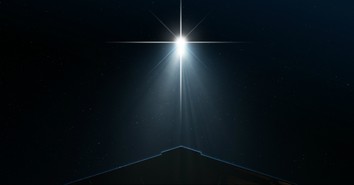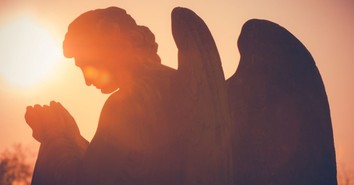Into the White a Stark Tale of Enemy-Friendship

DVD Release Date: June 25, 2013
Theatrical Release Date: April 12, 2013 (limited) & OnDemand
Rating: R (for some language, and wartime violence)
Genre: WWII drama
Run Time: 1 hr., 40 min.
Director: Petter Naess
Cast: Florian Lukas, David Kross, Rupert Grint, Stig Henrik Hoff, Lachlan Nieboer
What is it that makes fellow inhabitants of Planet Earth enemies with one another?
It's an age-old question, one that actually had me harkening back to the 1985 Dennis Quaid-Lou Gossett film Enemy Mine, and one which director Petter Naess (Elling) does absolutely nothing new with in Into the White. But that doesn't mean the film is without merit or ideas to contemplate.
Based on true events, Into the White (titled Cross of Honour in Europe) takes place in late April 1940, at the front end of World War II, in the snowy Norwegian wilderness. What's that you say? You never knew Norway was such the WWII battle ground? Turns out both Germany and Great Britain coveted the iron ore and other raw materials to be found there, and so air battles and skirmishes over Norse soil were not uncommon.
In one such battle, a Nazi bomber and an English fighter each caused the other to crash land in a stark and barren snow-covered region (note the irony in wanting to extract someone else's metal while leaving huge charred chunks of your own littering their landscape). The Germans lost one crew member in the crash, but three survived, one having sustained an injury to his left elbow. They are well stocked and adept at survival, spending their first night in a snow cave as they make their way towards the coast. After their supplies are lost in an ascent to higher ground, however, they must find help quickly. That's when - from out of the white - the outline of a small cabin appears.
The cabin is uninhabited. There is enough firewood and oats on hand to survive a day there, maybe two. And that's when things get (mildly) interesting. The downed Englishmen also locate the cabin, and the two sides commence to lots of posturing, pointing lugers at each other, and taking turns taking each other prisoner.
All the archetypes are present, and they are fun to consider. Among the Germans is a commanding officer whose confident veneer is a mere mask for his failings; an older, wiser family man named Strunk who signed up out of a sense of duty (and possibly boredom); and a very eager young man, the injured Josef, who believes naively in Hitler's plan for a new Germany.
On the British side there is the aristocrat officer who has never cooked for himself before (Lachlan Nieboer channeling Hugh Grant), and his common, pub-hopping, dart-throwing Scouse airman, Smith (Rupert Grint, post-Harry Potter, doing a fine job). Under the circumstances of survival among the Nazis these two countrymen are obviously allies. But ask yourself if you think they'd even say hello to each other on the streets of London.
All of them soon realize, however, that when lives are on the line, politics matter little. And when genuine time is spent with others, propaganda rings false. The implication, of course, is that we're always - at some level - in survival-and-dependence mode, so why aren't we also always practicing cooperation and friendship?
We might recognize the answer to such a question as sin: a selfishness and pride that promotes distrust, disharmony, and disequality. Perhaps the characters come to a similar realization when the film's most powerful metaphor occurs: Horst, the German officer, played convincingly by Florian Lukas, tosses Josef's autographed copy of Hitler's Mein Kampf into the wood-burning stove, unregrettably and unceremoniously, and friendships are forged.
Look also for the way this miscast band of brothers consumes the cabin's resources - even the cabin itself - just as their countries would do to Norway. That we must burn the very thing that sustains us is one of the movie's subtlest, saddest messages, and there comes a moment where the warriors nearly go too far.
In the film's most memorable scene, four former enemies stand silhouetted atop a hill witnessing the aurora borealis as one of them sings "Over the Rainbow." Soon after, the weather clears, the sun comes out, and Norwegian troops track down our heroes.
Into the White thus embarks upon an ending that is partially tragic and happy, sad and affirming, regrettable and hopeful. This is the kind of film you end up glad you saw despite the fact that it didn't do any one thing in spectacular fashion, and leaves you neither praising nor despairing the condition of the human spirit.
CAUTIONS:
- Language/Profanity: A handful of uses of the f-word, some uses of the s-word; male characters use coarse terms to brag about their genitalia; a "pi--ing contest"
- Alcohol/Smoking/Drugs: Alcohol is used to dull a man's senses before surgery; characters share a drink that is more about friendship and imbibing calories than getting drunk; one character has saved cigarettes for the day of rescue, but passes them out for a shared smoke in the cabin
- Sex/Nudity: None. Characters are shown using the outhouse or relieving themselves outdoors, but nothing is seen
- Violence: Aircraft crash off-screen; a rabbit is shot for food, a man then cuts the dead rabbit's head off; a man is hit in the face to knock him out for his own good; a man's gangrenous arm is amputated with an ax; guns are pulled on people threateningly; a man is shot in the chest and killed
Publication date: April 12, 2013
Originally published April 11, 2013.







